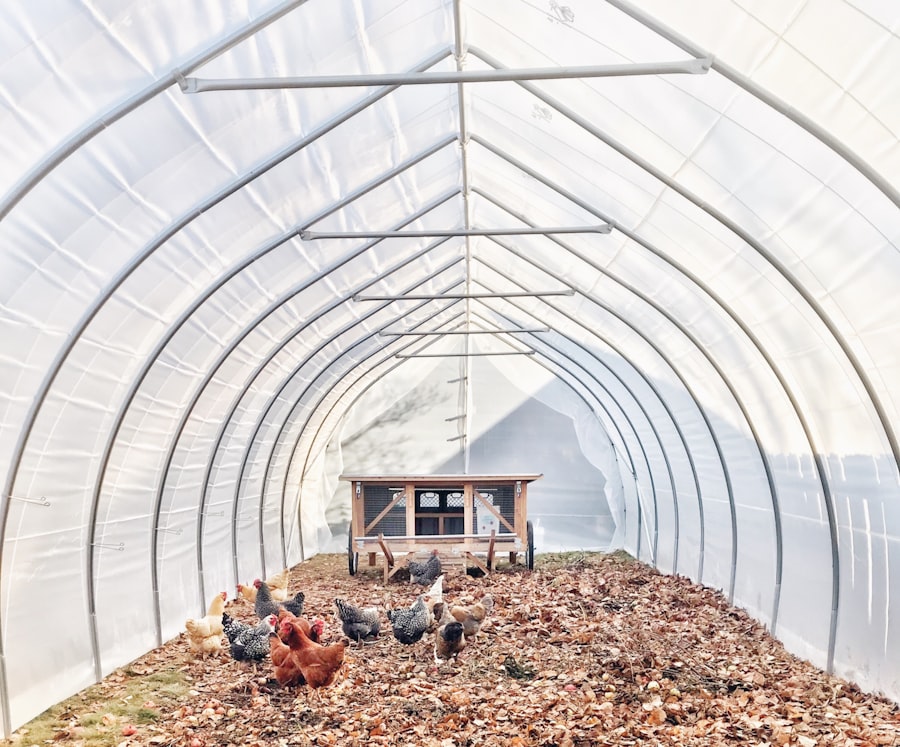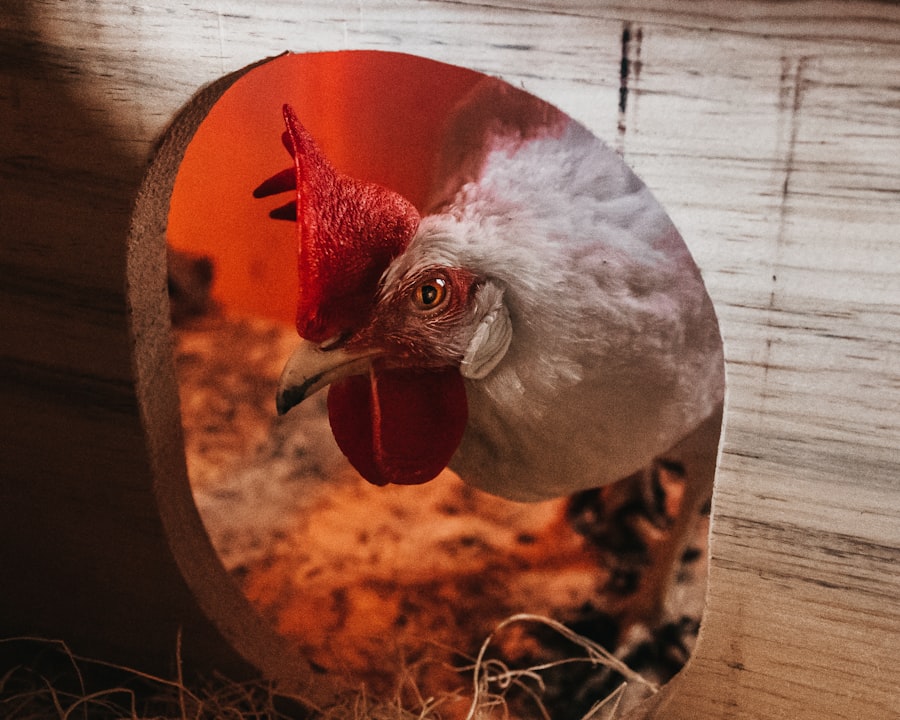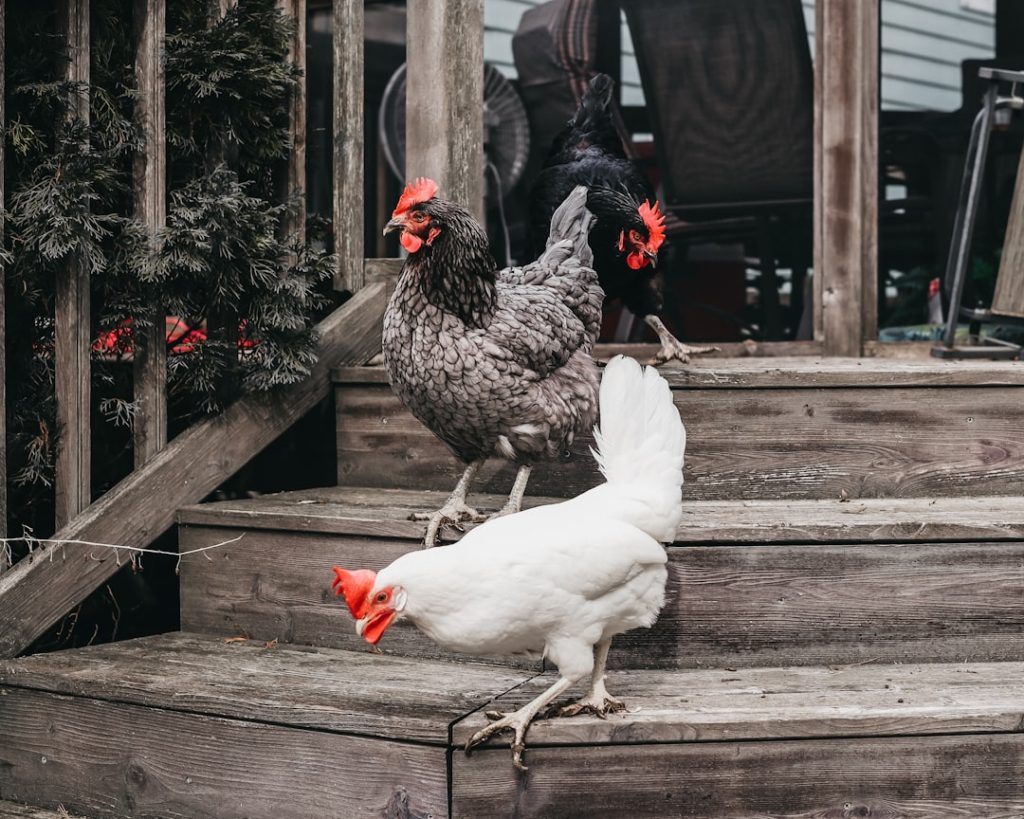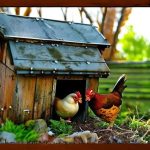Coyotes are adaptable and intelligent predators that present a significant risk to backyard chicken flocks. Their hunting prowess and ability to exploit vulnerabilities in coop security make them a formidable threat. Understanding coyote behavior is essential for developing effective protection strategies for chickens.
Coyotes are primarily nocturnal, conducting most of their hunting activities at night. They are opportunistic feeders, preying on small animals including rabbits, rodents, and poultry. Coyotes exhibit territorial behavior and may repeatedly return to an identified food source, such as a chicken coop.
These predators possess impressive digging and jumping abilities, necessitating secure fencing and barriers for chicken coops. Coyotes can dig under fences and scale obstacles, which must be considered when designing coop defenses. Their intelligence allows them to quickly learn how to overcome inadequate security measures.
Recognizing these behavioral traits is crucial for implementing a comprehensive security plan for chicken coops.
Table of Contents
- 1 Securing the coop: Implementing proper fencing and barriers
- 2 Utilizing deterrents: Exploring non-lethal methods to discourage coyotes
- 3 Nighttime precautions: Protecting chickens during the hours of darkness
- 4 Supervision and monitoring: Keeping a close eye on the flock
- 5 Community support: Seeking advice and experiences from fellow chicken owners on Reddit
- 6 Emergency response: Knowing what to do if a coyote threat becomes imminent
- 7 FAQs
- 7.1 What are some effective methods for keeping coyotes away from chickens?
- 7.2 What type of fencing is best for keeping coyotes away from chickens?
- 7.3 Are there any natural deterrents for keeping coyotes away from chickens?
- 7.4 What should I do if I encounter a coyote near my chicken coop?
- 7.5 Are there any legal methods for dealing with coyotes that are threatening my chickens?
Key Takeaways
- Coyotes are intelligent and adaptable predators, known for their opportunistic hunting behavior and ability to scale fences.
- Proper fencing and barriers, such as hardware cloth and electric fencing, are essential for securing the coop and protecting chickens from coyote attacks.
- Non-lethal deterrents, such as motion-activated lights, sound devices, and predator urine, can help discourage coyotes from approaching the coop.
- Nighttime precautions, such as locking chickens in a secure coop and using motion-activated cameras, are crucial for protecting chickens from coyote attacks.
- Regular supervision and monitoring of the flock, especially during dawn and dusk when coyotes are most active, can help prevent potential attacks.
- Seeking advice and experiences from fellow chicken owners on Reddit can provide valuable insights and support in dealing with coyote threats.
- Knowing what to do in case of an imminent coyote threat, such as making loud noises, using air horns, and contacting local authorities, is essential for emergency response.
Securing the coop: Implementing proper fencing and barriers
Fencing and Barriers: The First Line of Defense
Implementing proper fencing and barriers is crucial in safeguarding your chickens from coyote attacks. Coyotes are skilled diggers and jumpers, so it’s essential to construct a fence that is both tall and buried deep into the ground. A fence that stands at least six feet tall can help deter coyotes from jumping over it, while burying the bottom of the fence at least one to two feet underground can prevent them from digging underneath it.
Securing the Coop: A Strong Defense Against Coyotes
In addition to fencing, it’s vital to secure the coop itself with sturdy materials and hardware cloth to prevent coyotes from gaining access to the chickens. Reinforcing doors and windows with locks and latches can also help prevent break-ins. Adding an outward-facing overhang at the top of the fence can further discourage coyotes from attempting to climb over it.
Regular Inspections: Maintaining a Secure Coop
It’s crucial to regularly inspect the coop for any signs of wear or damage to ensure that it remains secure against potential coyote threats. By implementing these measures, you can create a strong barrier that will help protect your chickens from coyote attacks.
Utilizing deterrents: Exploring non-lethal methods to discourage coyotes

In addition to physical barriers, there are several non-lethal methods that can be used to discourage coyotes from targeting your chicken coop. One effective deterrent is the use of motion-activated lights and sound devices. These devices can startle and deter coyotes when they approach the coop, making them think twice about attempting an attack.
Additionally, using scent deterrents such as predator urine or ammonia-soaked rags around the perimeter of the coop can help create a barrier that coyotes are reluctant to cross. Another non-lethal method is the use of guard animals such as dogs or llamas. These animals can help protect the flock by alerting you to potential threats and deterring coyotes from approaching the coop.
However, it’s important to carefully introduce any new animals to the flock to ensure they do not pose a threat to the chickens themselves. By exploring these non-lethal methods, you can create a multi-layered defense system that will help discourage coyotes from targeting your chickens.
Nighttime precautions: Protecting chickens during the hours of darkness
Nighttime is when coyotes are most active, making it crucial to take extra precautions to protect your chickens during these hours. One effective method is to lock the chickens inside the coop at night, where they will be safe from potential coyote attacks. Additionally, installing automatic coop doors that close at dusk and open at dawn can help ensure that the chickens are secure during the night.
It’s also important to regularly inspect the perimeter of the coop for any signs of potential entry points for coyotes. Repairing any damage to fences or barriers promptly can help prevent coyotes from gaining access to the chickens during the night. Additionally, using motion-activated lights around the coop can help deter coyotes from approaching during the darkness.
By taking these nighttime precautions, you can help ensure that your chickens remain safe from potential coyote threats.
Supervision and monitoring: Keeping a close eye on the flock
Regular supervision and monitoring of the flock can help identify potential threats from coyotes and other predators. By regularly checking on the chickens throughout the day, you can quickly identify any signs of distress or potential danger. Additionally, installing security cameras around the coop can provide you with real-time monitoring of any activity around the area.
It’s also important to be aware of any changes in behavior or routines of the chickens, as these can be indicators of potential threats. For example, if the chickens appear agitated or reluctant to leave the safety of the coop, it may be a sign that there is a predator in the vicinity. By keeping a close eye on the flock and regularly monitoring their behavior, you can quickly identify and respond to potential coyote threats.
Community support: Seeking advice and experiences from fellow chicken owners on Reddit

Learning from Others’ Experiences
By joining online communities dedicated to raising chickens, you can connect with other owners who have faced similar challenges and learn from their experiences in dealing with coyote attacks. These communities can provide valuable tips and advice on effective strategies for protecting your chickens from predators.
Emotional Support During Challenging Times
Dealing with potential threats from predators such as coyotes can be stressful and overwhelming, but connecting with others who have faced similar challenges can provide reassurance and encouragement.
Gaining Knowledge and Support
By seeking community support on platforms such as Reddit, you can gain valuable knowledge and support in protecting your flock from coyote threats.
Emergency response: Knowing what to do if a coyote threat becomes imminent
In the event of an imminent coyote threat, it’s important to have a plan in place for responding quickly and effectively. One important step is to have a designated safe area for the chickens to retreat to in case of an attack. This area should be secure and inaccessible to predators, providing a safe haven for the chickens until the threat has passed.
It’s also important to have a plan for alerting authorities or seeking assistance in dealing with a potential coyote threat. Contacting local animal control or wildlife authorities can provide valuable support in addressing the situation and ensuring the safety of your flock. Additionally, having a plan for safely deterring or repelling coyotes in emergency situations can help protect your chickens from potential harm.
By being prepared with an emergency response plan, you can quickly and effectively address potential coyote threats and ensure the safety of your flock. It’s important to regularly review and update this plan to ensure that it remains effective in protecting your chickens from predators such as coyotes.
If you’re looking for more tips on keeping your chickens safe, you might want to check out this article on chicken coop interior ideas. It offers great advice on how to create a secure and comfortable environment for your chickens, which can also help keep coyotes at bay.
FAQs
What are some effective methods for keeping coyotes away from chickens?
Some effective methods for keeping coyotes away from chickens include using secure fencing, installing motion-activated lights or sprinklers, using guard animals such as dogs or llamas, and removing attractants such as food scraps or garbage.
What type of fencing is best for keeping coyotes away from chickens?
The best type of fencing for keeping coyotes away from chickens is a sturdy, high-quality fence that is at least 6 feet tall and buried at least 12 inches underground to prevent digging. Electric fencing can also be effective in deterring coyotes.
Are there any natural deterrents for keeping coyotes away from chickens?
Some natural deterrents for keeping coyotes away from chickens include using strong-smelling plants such as lavender or garlic, and using predator urine or scents to create a barrier around the chicken coop.
What should I do if I encounter a coyote near my chicken coop?
If you encounter a coyote near your chicken coop, it’s important to make loud noises, wave your arms, and throw objects to scare the coyote away. Do not approach or corner the coyote, and if necessary, contact local wildlife authorities for assistance.
Are there any legal methods for dealing with coyotes that are threatening my chickens?
In some areas, it may be legal to use lethal methods such as trapping or shooting to deal with coyotes that are threatening your chickens. However, it’s important to check local regulations and obtain any necessary permits before taking any action against coyotes.
Meet Walter, the feathered-friend fanatic of Florida! Nestled in the sunshine state, Walter struts through life with his feathered companions, clucking his way to happiness. With a coop that’s fancier than a five-star hotel, he’s the Don Juan of the chicken world. When he’s not teaching his hens to do the cha-cha, you’ll find him in a heated debate with his prized rooster, Sir Clucks-a-Lot. Walter’s poultry passion is no yolk; he’s the sunny-side-up guy you never knew you needed in your flock of friends!







